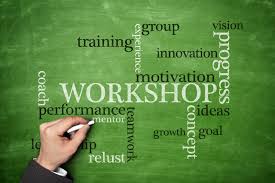Yes, if it’s the right career for you.
According to a Glassdoor Blog, some of the highest paying jobs are in sales!
Sales people are the backbone of any company — they are instrumental in making or breaking the success of any product and service the company provides. However, before you fly onto the job boards to find a job in sales, conduct a critical analysis of your thinking style, core behaviors and occupational interests by using a qualified career fitness assessment*. Know upfront, and objectively, whether or not you have what it takes to sell and the type of company that will help you succeed. Remember, many sales people fail to achieve 6-figure incomes due to poor job fit and the unwillingness to develop the discipline required.
How do you find the right job for you in sales?
Step 1: Determine if sales is the right career path for you. Are you able to “sell” by “closing a sale” on a consistent basis? Do you possess similar traits that highly successful sales people have? This can only be ascertained by using a qualified career fitness assessment* and looking at your past sales metrics.
Step 2: Find the right type of sales position. There is a BIG difference between handling incoming orders vs. finding sales opportunities through cold calling and networking contacts. Don’t forget to investigate customer service, marketing and account executive/manager type jobs that may provide better job fit and are normally paid hourly or salary plus commission. Be sure you have the required interests in the product or services, willingness to learn the company systems, excellent people skills and discipline to consistently network. Success in these jobs requires lots of patience, follow-up and follow-through when answering questions, educating customers, and resolving system/product/service issues.
Step 3. Armed with your career fit information, research the industry, company’s culture, and types of products/services offered. Clarity, based upon feedback from your career fit assessment*, will let you know if you have the level of competitiveness, tact and team attitude required. Also, determine if the pay structure (e.g., straight commission vs. base + commission; and, type of bonuses and other perks) works for you. If you are risk-adverse, be sure the base is bigger than the potential commission.
Step 4. Know the company’s hiring practices. Beware that many companies do a poor job of hiring anyone, particularly in sales. Too often hiring managers rely on the candidates’ ability to sell themselves, tell them what they want to hear, and look the part! Being offered the job does not guarantee a six-figure income. You may or may not fit the culture or job requirements.
To increase the probability of succeeding if you are hired, spend time networking for insider information (not found on the Internet) before the interview and conduct your due diligence during the interview(s) by preparing good questions. (For help, read Chapter 12 in the book, It’s Time to Brag! Career Edition, http://Time2Brag.com) Remember to ask about training programs and on-going coaching to help you develop your skills in lead generation, relationship building, prospecting, and closing techniques. If the job is offered, be willing to say, “No, thank you.” if it doesn’t appear to be a good career fit for you. Be honest – taking the job and losing it makes it harder to find the next one.
Ask yourself the most important question.
Do I want a job and career where I will be happy and satisfied? If the answer is yes, studies have shown that you are more likely to be happier and more satisfied when your job responsibilities fit you. The truth is, many times sales people job hop, or are laid off because they were unable to meet monthly or quarterly quotas, or due to territory or company restructuring. Finding the right career (whether or not in sales) will provide greater financial rewards in the long-run. There are no short-cuts to getting rich quickly. Expect to put in the time, learn the company, industry, product/service, and develop long-term relationships regardless of the job.
*The solution to determining career fitness.
The Pathway PlannerTM uses the same assessment information (based upon the world’s largest validation and reliability studies) that thousands of companies use to hire. (Contact http://SeibCo.com/contact.) This educational and career planning tool helps people discover what career possibilities best suit them at any age (16++). The key, like anything, is taking action and learn about different career paths that may fit. SeibCo provides the how-to-do-it in the book, It’s Time to Brag! Career Edition, (Time2Brag.com). This book also includes networking and interviewing advice for success.
To get career fit, contact SeibCo today: http://SeibCo.com/contact
To purchase the book, “It’s Time to Brag! Career Edition” go to: http://Time2Brag.com
For companies wishing to improve their hiring processes, go to: http://SeibCo.com/contact
©Jeannette Seibly, 2015 All Rights Reserved
Jeannette Seibly is an award-winning and internationally recognized business advisor. For the past 23 years, she has helped thousands of people work smarter, enjoy financial freedom, and realize their dreams now. She has an uncanny ability to help her clients identify roadblocks, and help them focus to quickly produce unprecedented results. Each client brings their own unique challenges, and her gift is helping each one create their success in their own unique way. Along the way, with her commitment, she helped create three millionaires.


